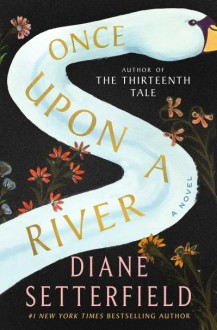
Opinia opublikowana na moim blogu:
https://literackiepodrozebooki.blogspot.com/2024/12/trzynasta-opowiesc.html



by Diane Setterfield
During a dark midwinter’s night in an ancient inn on the Thames, an injured man with a dead child are brought in from the river. The local healer is brought in and somehow, the dead child comes back to life.
This story had a poetic quality to the prose in the beginning redolent of a classic fairytale, yet the plot is totally original. I have to admit I wasn't sure what was going on for most of it. Is the child supernatural? Several people want to claim her, thinking it's a daughter or sister they lost. Perhaps an orphan child they might adopt. Somehow her features seem to appear familiar to all of them and each wants to take responsibility for her.
Eventually, towards the end, all is revealed and things begin to make sense, apart from the part that really is supernatural. It's a mystery story that moves at a slow pace, reflecting the effects of a slow moving river on the community that lives within the flood plain of its banks.
The only fast action is towards the end. This is one for the patient reader, and for those who like to spend most of the book working out the answer to a puzzling situation.

It’s finally happened. I have read a Diane Setterfield book in which I liked the prose AND the plot AND the characters. The third time really is the charm, apparently. Persistence pays off! Sort of!
The story meanders like the titular river, seeming to flow slowly on the surface with hidden currents beneath. I enjoyed the fairy tale theme, but at the same time I found myself wishing that Setterfield had set out to subvert it instead of lean so hard into it. A whole lot of fairy tales and legends hinge on the suffering of women, and Once Upon a River is no exception. In fact, it plays most of the greatest hits, including but not limited to: rape, physical abuse, emotional abuse, abandonment, etc. Rita Sunday’s character journey had the most subversion potential, which is why the way she’s treated made me full-body cringe.
She starts out an educated, independent woman who is adamantly against getting married and having kids because her own mother died in childbirth, and as a nurse herself she’s seen what horrors are involved in procreation. I’m fine with that! I’m in the “Kids Aren’t For Me” club myself. I knew what to expect given the time period the book is set in, but every time another character told her she should have kids, I ground more enamel off my molars. I had such high hopes for the character at the start. She had such a great intro! Then she sits down with the mysterious girl in her lap and instantly regrets never getting married and having kids. The girl has a similar effect on everyone who touches her, but still. Rita’s personal struggle for the whole book is falling in love and realizing she wants a family but being too afraid of going through childbirth before ultimately deciding it’s worth the risk (after holding someone else’s baby “Not like a nurse. [. . .] Like a mother.” OH HOW MY EYES ROLLED).
So anyway, yay for Setterfield with her beautiful prose finally writing a book with a story that interested me. Though I have to admit, after Bellman & Black that bar was really low.

Me reading The Thirteenth Tale: I really love the gorgeous prose, but I couldn’t give a toss about these characters or the story.
Me reading Bellman & Black: I still love the gorgeous prose, but ye gods, this is boring.
Me at the library: Oh, look! Another Setterfield book. I sure do love her gorgeous prose. Third time’s the charm???